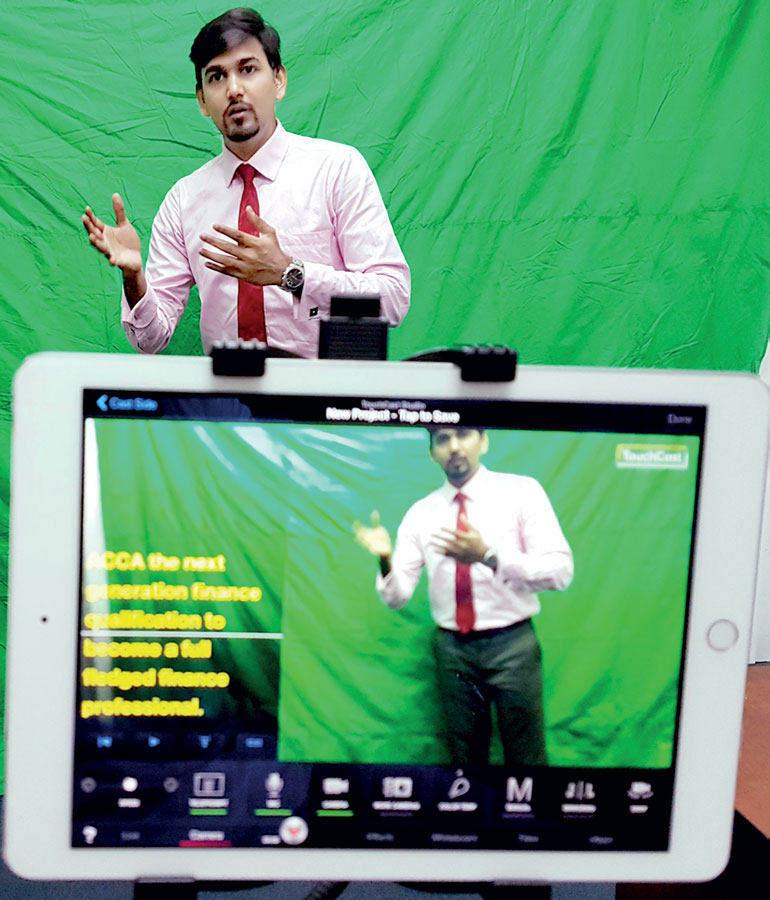Sunday Feb 22, 2026
Sunday Feb 22, 2026
Thursday, 3 August 2017 00:02 - - {{hitsCtrl.values.hits}}
 As technology has become an integral part of everyone’s life, the Sri Lankan education landscape needs to be quick to adopt Information and Communications Technology (ICT) into their teaching and learning process at universities and institutes .Today, all over the world, technology-based tools are helping students to learn, communicate, collaborate and study better both on and off campus
As technology has become an integral part of everyone’s life, the Sri Lankan education landscape needs to be quick to adopt Information and Communications Technology (ICT) into their teaching and learning process at universities and institutes .Today, all over the world, technology-based tools are helping students to learn, communicate, collaborate and study better both on and off campus
Leading the way in smart video learning: Creating an environment of academic excellence, innovation and motivated learning by leveraging video conferencing technologies brought into the classroom to enhance learning, ICBS has taken the step towards being the first institute in the country to embed the futuristic Touchcast video conferencing methodology into their classrooms and is now providing more interactive and synchronous learning resulting in improved student performance.
TouchCast as the most advanced video conferencing platform currently available to experience, with Smart Video at its core, allows a person to collaborate on an endless, digital whiteboard, share files, documents and presentations with participants during each session by bringing in videos, photos, and web pages, give the ability to record and archive any session and to find and play back any part of a previous lecture with video transcription and smart search. Connecting their students with in this way and making it easier for lecturers to teach and students to learn, ICBS has smoothly integrated this technology into everyday classrooms using desktops, tablets, and a simple internet connection.
Taking the learning process to the next level: Thilina Ukwatta Head of Strategic Planning and Senior Lecture at ICBS stated, “Video in the classroom is a powerful tool because it has the ability to make the classroom come alive, make meaningful learning experiences and connections and allows a student to never again miss a lesson with recorded lessons that students can watch as many times as they need to at their own pace.
Using the TouchCast technology, our lecturers easily produce interactive video lectures that engage students. It includes earning materials that students can explore, or a personalised grading that bridges the gap between professors and their students. Students learn actively, engage in hands-on projects in the classroom, and produce interactive videos to document and present their learning and work in teams and collaborate within and outside their classrooms.
He added, “Young people today are drawn to the world of online broadcasting and in communicating their ideas and thoughts through video. By supporting their natural communication habits, we are helping to create an environment in which they learn by doing. Therefore by utilising this methodology, we aim to help hurdle learning obstacles, offer opportunities to facilitate easy access to information, and enhance the teaching and learning processes through online collaboration, and self-paced learning, by utilising the aid of these technological tools. Our objective through this initiative is in developing a digital environment which meets students’ expectations and help them to progress to better study, leading to better results and better employment.”
This unique initiative of ICBS’s ongoing ‘smart’ transformation and shift to a ‘smart’ learning environment, emphasises and epitomises that today’s ‘smart’ learning strategies provide building blocks for tomorrow’s ‘Smart Societies’ which will rely on innovative solutions for 21st-century living. ICBS will continue to leverage its ‘Smart Learning’ elements to raise the bar in learning and reshaping their educational landscape and environment to complement evolving learning requirements.